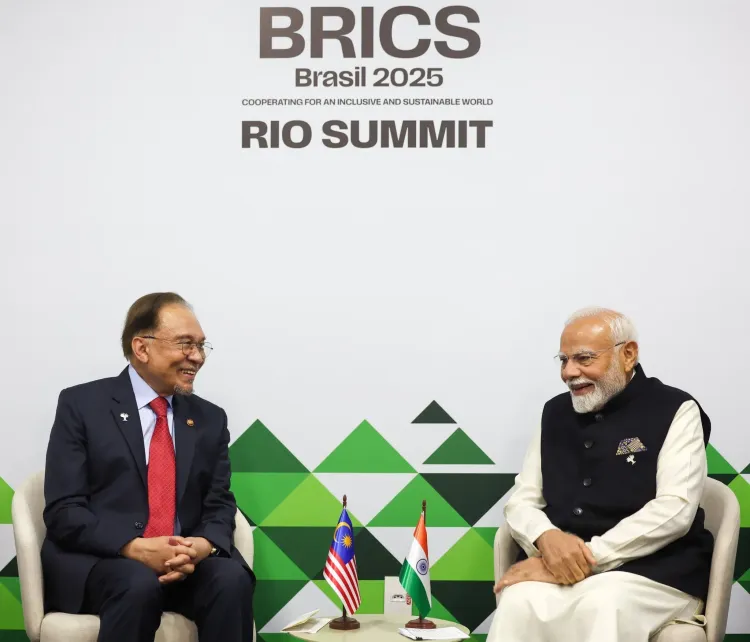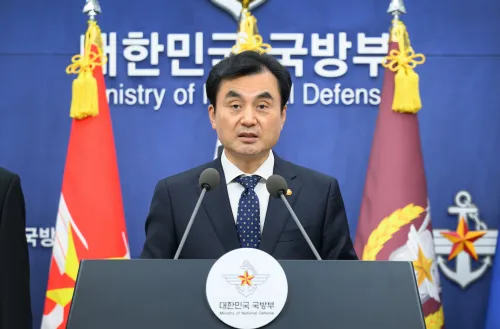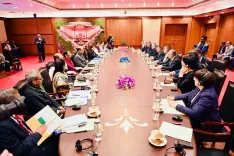What Progress Did PM Modi and Malaysian Counterpart Make in Bilateral Ties?

Synopsis
Key Takeaways
- PM Modi and Anwar Ibrahim met at the 2025 BRICS Summit.
- Focus on enhancing investment and trade relations.
- Key sectors for growth include IT, renewable energy, and infrastructure.
- Need for reform in global institutions.
- Strong historical ties between India and Malaysia.
Rio de Janeiro, July 7 (NationPress) Prime Minister Narendra Modi met with his Malaysian counterpart Anwar Ibrahim during the 2025 BRICS Summit, where both leaders assessed the status of their bilateral relationship and explored avenues to enhance investment and trade ties.
On social media platform X, PM Modi shared images from their meeting on Sunday, stating: "I had a productive discussion with the Malaysian Prime Minister, Mr. Anwar Ibrahim, at the BRICS Summit in Brazil. Malaysia plays a pivotal role in India's Vision MAHASAGAR and Act East Policy."
He further noted: "We examined the advancements in our bilateral relations since PM Ibrahim's visit to India last year. Key sectors such as IT, renewable energy, and infrastructure are seeing significant growth in our partnership. We also deliberated on strategies to enhance investment and trade relations between our nations."
Earlier, Malaysian PM Anwar Ibrahim remarked that "the BRICS coalition, which has emerged as a robust and principled entity, presents an opportunity to forge a more equitable and just global order."
He emphasized the need for reform in legacy international organizations to accurately reflect the evolving global landscape and the aspirations of developing nations.
Anwar called for a comprehensive restructuring of global institutions like the United Nations, International Monetary Fund, World Bank, and World Trade Organization, to better address the current realities and the needs of developing countries, rather than adhering to outdated post-World War II frameworks.
During his address at the 17th BRICS Summit hosted by Brazil, Anwar added that the grouping must bolster its economic collaboration both among its member states and with other regional alliances such as the Association of Southeast Asian Nations (ASEAN).
"BRICS and ASEAN nations should continue to strengthen strategic cooperation, focusing on enhancing cross-regional trade and investment for the mutual benefit of developing nations," he emphasized.
India established diplomatic relations with the Federation of Malaya (the predecessor state of Malaysia) in 1957, and the two nations enjoyed a solid relationship in the 1960s, largely due to the personal rapport between then Prime Ministers Jawaharlal Nehru and Tunku Abdul Rahman Putra.
Previous Malaysian PMs Abdullah Badawi (2004-2009) and Mohd. Najib Tun Abdul Razak launched several initiatives aimed at fostering closer ties with India.
The Ministry of External Affairs stated that "there is significant goodwill for India among the Malaysian populace, hosting approximately 2.75 million Persons of Indian Origin (PIOs), which is the second-largest PIO community globally, following the US, and the third-largest Indian diaspora worldwide (2.9 million)."
Since the elevation of India-Malaysia relations to an Enhanced Strategic Partnership during PM Modi's visit to Malaysia in November 2015, there has been a notable increase in engagement across all facets of their bilateral relationship.










